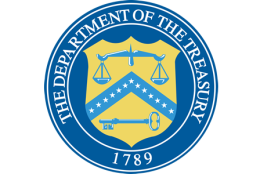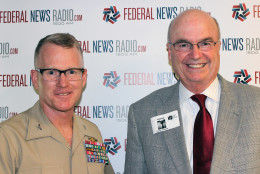Management
-
Stan Lowe, VA’s deputy assistant secretary in the Office of Information Security, becomes the second senior executive to leave this week.
August 07, 2015 -
The Office of Management and Budget has told agencies to rethink how they interact with the public, and how they think about citizens as customers. The General Services Administration says it’s here to help. As Federal News Radio's Jared Serbu reports, GSA says it’s designing tools to help agencies get their “customer experience” programs off the ground and understand what citizens want.
August 07, 2015 -
The House of Representatives passed a bill last week making it much easier to fire employees at the Department of Veterans Affairs. Former DHS HR exec Jeff Neal says we will not see a big increase in the number of fired employees, but those who are fired will have far fewer legal rights than they do today.
August 07, 2015 -
Montrice Yakimov, the chief risk officer for the Bureau of the Fiscal Service in the Treasury Department, said her office looks at many different types of risk to help agency leaders make smart decisions.
August 07, 2015 -
The Office of Personnel Management’s inspector general wrote a letter to acting Director Beth Cobert highlighting concerns about the lack of cooperation from the Donna Seymour’s office. Cobert and federal CIO Tony Scott continue to support Seymour’s efforts to improve OPM’s cybersecurity posture.
August 06, 2015 -
Tom Sharpe, the commissioner of the Federal Acquisition Service at GSA, said the agency is working through comments from contractors to try to find the best approach possible to reporting data on schedule buys.
August 06, 2015 Stephen Warren, Veterans Affairs' number-two information technology official, will step down in late August according to a memo from VA CIO LaVerne Council.
August 06, 2015-
The Department of Veterans Affairs says it’s trying to become a customer focused organization, with programs built more around input from veterans themselves and less by the whims of Washington policymakers. Federal News Radio’s Jared Serbu reports VA is starting with the fundamentals – like figuring out who those customers are.
August 05, 2015 -
Semper fidelis or always faithful applies to the Marine Corps in more ways than one. Colonel Keil Gentry is the director of the Marine Corps War College. Charles Neimeyer is the director and chief of Marines Corps History at the Marine Corps University in Quantico Virginia. The tell In Depth with Francis Rose about some leadership lessons they teach their students that can apply to almost anyone.
August 05, 2015 -
New analysis from the Partnership for Public Service of the Office of Personnel Management's Employee Viewpoint Survey shows that low employee satisfaction negatively impacts an agency's ability to hire and retain employees.
August 05, 2015 -
The Senate Judiciary Committee mediates a crisis caused by a Justice Department legal opinion that says inspectors general should not automatically get access to all records they need for their investigations.
August 05, 2015 -
Retiring NTEU president Colleen Kelley says she never considered herself a Beltway insider after living in the DC area for more than 28 years. She said she spent about half her time as president on the road, listening to federal employees voice their concerns. She said that's the best advice she can offer her successor once NTEU casts its votes next Tuesday.
August 05, 2015 -
Tom Sharpe, the commissioner of the Federal Acquisition Service at GSA, said with 17 hallways in place and tools to support them, the goal is to understand the impact of these efforts. GSA also is trying to alleviate customer agency concerns about pricing with new initiatives.
August 05, 2015 -
The federal government is falling behind in its efforts to hire a new cohort of cybersecurity experts. And agencies can't keep up with the perks some top-tier private companies offer. That's according to research the Partnership for Public Service and Booz Allen Hamilton put out earlier this year. A few agencies recently hosted the winners of the National Collegiate Defense Cyber Competition to show them what they might expect from a government job. More now from Federal News Radio's Emily Kopp.
August 04, 2015 -
The Army Reserve wants to make sure its soldiers aren’t relegated to the military’s B-team – called on only in case of emergency. But to do that, it needs to make sure its servicemembers are constantly training in their specialties, something that’s increasingly difficult under constrained budgets. As Federal News Radio’s Jared Serbu reports, the Reserve is looking to dramatically lower its training costs through public-private partnerships.
August 04, 2015








